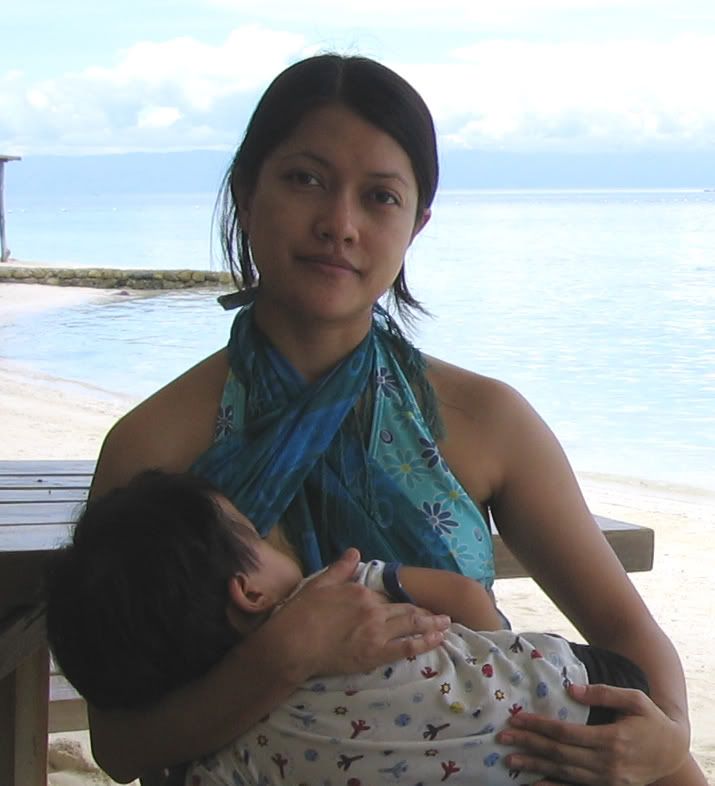Scientists have long known that the mother's brain is flooded with oxytocin when breastfeeding. But until recently, they had been puzzled as to how enough oxytocin was produced to alter the mother's moods. Now they know.
A study published on July 18, 2008 at the Public Library of Science Computational Biology found that breastfeeding mobilizes more than the usual brain cells that secrete oxytocin. Breastfeeding puts dendrites to work as well to secrete oxytocin.
Oxytocin, which is also secreted during labor and sexual intercourse, is also known as the "love hormone". It increases feelings of trust, relaxation and love. It has a sedative effect. No wonder many women report feeling drowsy while breastfeeding.
Breastfeeding also fosters closeness between mother and child in other ways. It enables Mommy and baby to have more physical and skin-to-skin contact. Mothers and babies gaze into each other's eyes for extended periods of time while breastfeeding. Mothers also tend to interact in other ways with their babies when breastfeeding.
In contrast, bottle-fed babies can easily be passed on to other people to be fed -- making it easier for Mom to be separated from baby - and worse be fed without any human contact at all, through a bottle prop.
While breastfeeding has been shown in several studies to help immensely with mother-child bonding, it is not a necessary condition for bonding to occur. However, those who bottle feed can and should take the following lessons from breastfeeding to foster a stronger bond with their children:
- be attentive to your child's cues and respond to them promptly
- seek ways to be physically close and affectionate to your child in appropriate ways
- make plenty of eye contact with your child
- spend time with your child
- relax and trust in your ability to be a good mother to your child
PLOS Computation Biology, July 2008




